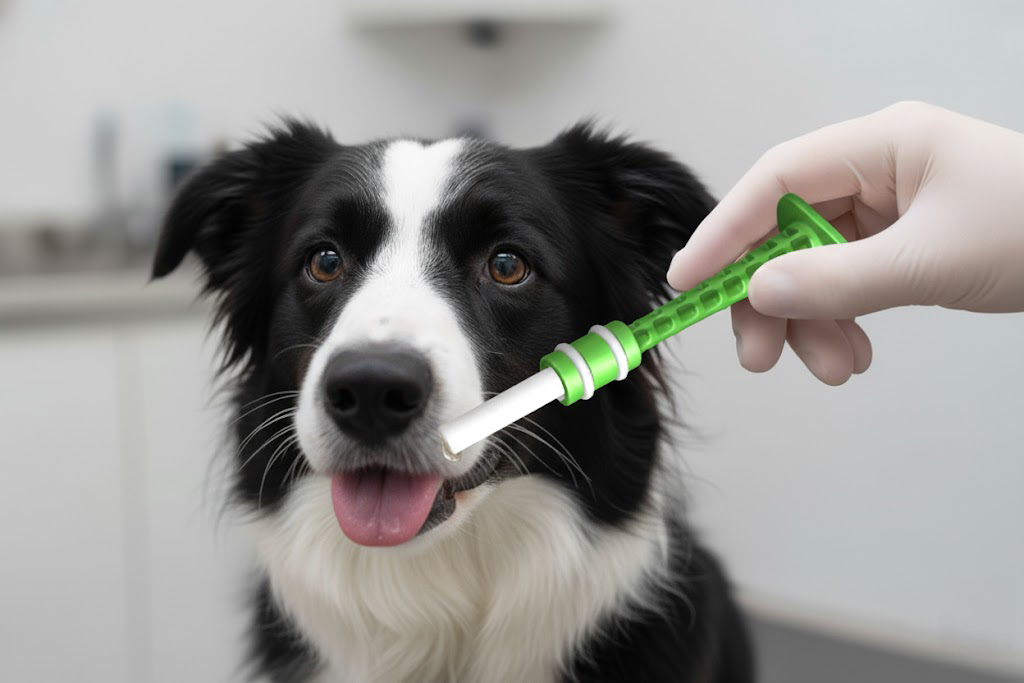
A Smoother, Stress-Free Way to Check Your Pet’s Health: Easy Saliva Collection for Small Animals
Unlocking Health Insights from Pet Saliva
Saliva testing is quickly changing the way we look after our pets, offering a gentle, stress-free alternative to the standard blood draw for checking important health indicators. For small animals—our beloved dogs, cats, and even exotic pets—this method is incredibly valuable because it avoids the anxiety and physical stress associated with getting blood drawn. That stress can actually cause hormones like cortisol to spike, which would unfortunately give us inaccurate results!
The simple process of saliva collecting for diagnostic purposes lets vets and researchers keep tabs on everything from a pet’s daily stress levels and immune system strength to specific hormone cycles and how well their medicine is working, all from a simple sample taken right at home. However, gathering enough pure saliva from a small, often squirmy, patient does come with its own unique hurdles.
The Challenges of Gentle Saliva Collection for Small Animals
Collecting adequate saliva from a small animal requires patience and the right gentle tools. Traditional methods often run into three main obstacles that concern pet owners:
- The Trouble with Stress: Any method that feels invasive or requires a lot of holding down can undo the benefit of stress-free saliva testing by changing the very health indicators you are trying to measure. This is why non-invasive saliva collecting is essential for true baseline results, as researchers note that salivary cortisol reliably reflects stress while minimizing the stress of the collection itself (Zych et al., 2024).
- Tiny Samples, Big Requirements: Small pets naturally produce only small amounts of saliva. Getting the precise volume often required for accurate lab saliva testing can be difficult. Luckily, modern immunoassays are often designed to work with very small volumes, sometimes less than 100 µL.
- Keeping the Sample Clean: It’s very easy for a sample to get contaminated with things like food, fur, or even a tiny amount of blood if the gums are irritated. Since blood contains much higher concentrations of some biomarkers, even minor contamination can drastically confuse the lab results (R. J. D. Davies et al., 2002).
The Rise of Micro-Saliva Collection Technology
To solve the problems of volume and purity in saliva collection for small animals, the industry has developed smart, gentle collection tools that need only a tiny sample. These specialized devices are designed to maximize the yield of pure, whole saliva while minimizing collection time and, most importantly, stress on your pet. In addition to this micro-collection technology, for larger animals we have developed other technologies, such as the Super•SAL™ Saliva Collection Kit.
The ability to accurately perform saliva testing on these minute volumes is key to advancing veterinary science. Using specialized micro-collection methods, researchers can now glean significant health data from even the smallest of creatures. To learn more about this precision technology, particularly systems engineered to capture and stabilize minimal volumes for transport, please visit our dedicated page on Micro-Saliva Collection (Micro-Sal) Technology.
Key Applications of Small Animal Saliva Testing
Once a high-quality sample is secured through careful saliva collecting, the range of possible diagnostic and monitoring applications is broad and incredibly useful for better pet care:
- Understanding Stress and Mood (Checking Cortisol)Cortisol is the key indicator for measuring stress in the body. Saliva testing is preferred because it measures free, biologically active cortisol (the portion that is not bound to proteins), giving a more accurate view of adrenal function than serum or plasma (Zych et al., 2024). This allows vets to take measurements throughout the day (a daily pattern) without repeatedly stressing your pet. This gives a true, baseline picture of chronic stress, anxiety issues, and how they react to changes in their environment.
- Managing Breeding CyclesSaliva is a wonderful medium for monitoring reproductive cycles. By measuring hormones like progesterone and estrogen, vets can precisely determine the best breeding windows, diagnose fertility issues, or confirm reproductive status without the hassle of daily clinic visits. Accurate timing is critical, as specialized groups like the Purina Pro Club suggest that up to 75% of breeding failures can be attributed to incorrect timing.
- Making Sure Medications are Just Right (Therapeutic Drug Monitoring)For pets on critical, long-term medications, saliva can be used to measure drug concentrations. This non-invasive method is much less traumatic for the patient and helps veterinarians ensure the right amount of medicine is in their system.It’s important to note that while saliva TDM is commonly used for many anti-seizure medications in human medicine, research on certain drugs in small animals—such as phenobarbitone in dogs—has sometimes shown an inconsistent correlation between saliva and plasma levels (R. J. D. Davies et al., 2002). This variance highlights why using highly precise, validated saliva collection for small animals is crucial to achieving reliable TDM results.
Conclusion: The Future of Non-Invasive Veterinary Care
The widespread adoption of highly efficient, low-volume saliva collection for small animals and subsequent saliva testing is vital for the future of compassionate veterinary diagnostics. By easing patient stress and providing reliable, trustworthy results from minimal samples, tools like those used for micro-saliva collection empower veterinarians to make more accurate diagnoses and tailor treatment plans with greater precision. As this technology continues to advance, non-invasive saliva testing will undoubtedly become a standard, expected component of the best possible care for our companions.